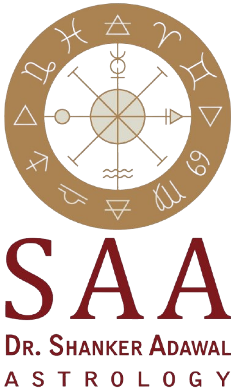 The foundation of Vedic astrology rests on the principle of karma. Every event in life, every joy, and every sorrow is seen as a reflection of actions performed in the past. Just as a seed sown in one season bears fruit in another, our deeds—good or bad—ripen over time, shaping our present circumstances. Astrology does not override free will, but it acts as a mirror that shows how past actions manifest through planetary influences.
The foundation of Vedic astrology rests on the principle of karma. Every event in life, every joy, and every sorrow is seen as a reflection of actions performed in the past. Just as a seed sown in one season bears fruit in another, our deeds—good or bad—ripen over time, shaping our present circumstances. Astrology does not override free will, but it acts as a mirror that shows how past actions manifest through planetary influences.
Planets in the horoscope are often called grahas, which means “that which seizes or holds.” They hold the imprints of our karmas and deliver their results at the right time. A strong benefic like Jupiter placed well in the chart may reflect generous actions of the past, bringing blessings of wisdom, prosperity, and good guidance. Saturn, on the other hand, often reflects karmas where responsibility was avoided, bringing lessons of patience, discipline, and humility. Rahu and Ketu, the shadow planets, represent karmic debts and unfinished desires, showing the lessons the soul must still learn.
The doctrine of karma explains why people born under similar circumstances live very different lives. Two individuals may have the same opportunities, but one rises quickly while the other struggles. Astrology traces this difference not to fate alone but to the unique karmic backlog each person carries. The horoscope becomes a map, where the positions of planets indicate the type of experiences one is destined to face and the timing of those experiences.
Dashas and transits are the tools through which karmas unfold. When the dasha of a particular planet operates, the karmic results connected with it come to the surface. For instance, a Saturn dasha may bring responsibilities long avoided, while a Venus dasha may bring relationships that reflect both love and the unresolved lessons of the heart. Transits act as triggers, activating the dormant seeds of karma shown in the natal chart.
Yet, astrology also emphasizes that karma is not fatalistic. While past actions shape the present, present actions create the future. Remedies like mantra, seva, fasting, and meditation are not superstitions but conscious efforts to align with higher vibrations, thereby softening the intensity of karmic results. Serving the poor, for instance, is seen as a remedy for Saturn because it balances karmas of neglecting duty toward others. Chanting mantras harmonizes the mind with cosmic rhythms, reducing the restless pull of past tendencies.
The philosophy of karma and astrology thus encourages responsibility rather than helplessness. Instead of blaming fate, it teaches that we are both the inheritors of our past and the creators of our future. Planets do not punish; they simply deliver what has been earned. In this sense, astrology is a compassionate guide—it shows not only where struggles may come but also how those struggles can be transformed into growth.
In the end, karma and astrology remind us of the same truth: life is a continuous cycle of cause and effect. The planets act as cosmic record-keepers, reflecting our deeds across lifetimes. By understanding their messages, we learn to walk with greater awareness, making choices that lead not only to worldly success but also to inner liberation. As the sages have said, “The stars incline, they do not compel.” Our past may shape our present, but our present always holds the power to shape a better future.
Mobile: 9818733000
www.ShankerStudy.com – ‘Bridging Ancient Wisdom with Modern Astrology’
Tag2Adawal.blogspot.com – ‘Blending Astro Stories with Soulful Simplicity’
www.ShankerAdawal.com – ‘Profile of Success: Vedic Wisdom and Business Strategy’
www.AskShanker.Com – ‘Discover the truth – ask one burning question based on your Horoscope!’
www.shrikrishnapravahashram.org – Serving Souls & Healing with Compassion: Empowering Girls, Upholding Tradition, and Offering Food to Every Guest – ‘Atithi Devo Bhava’!

